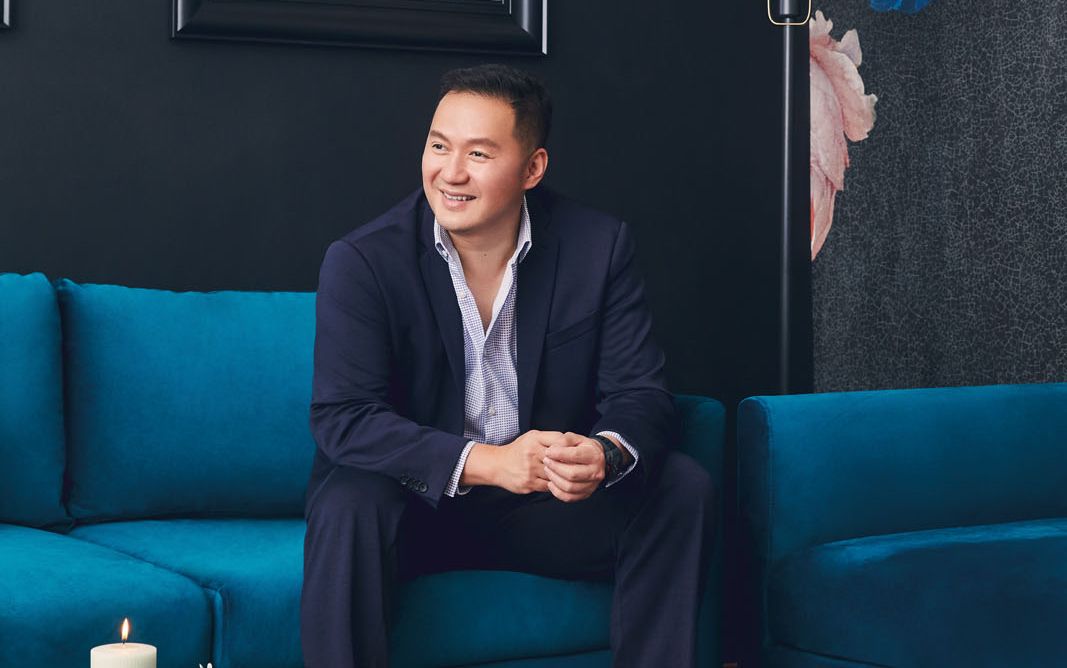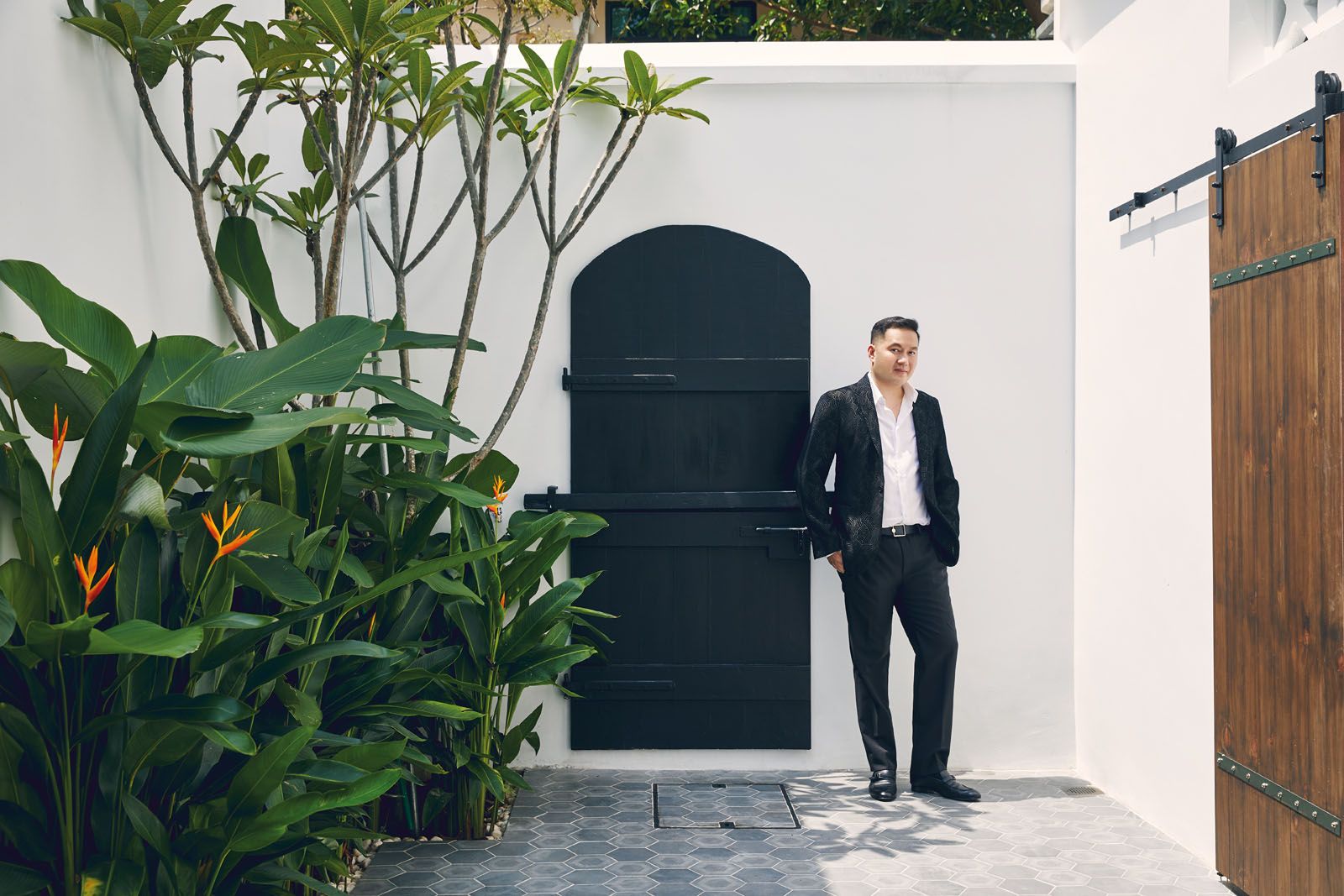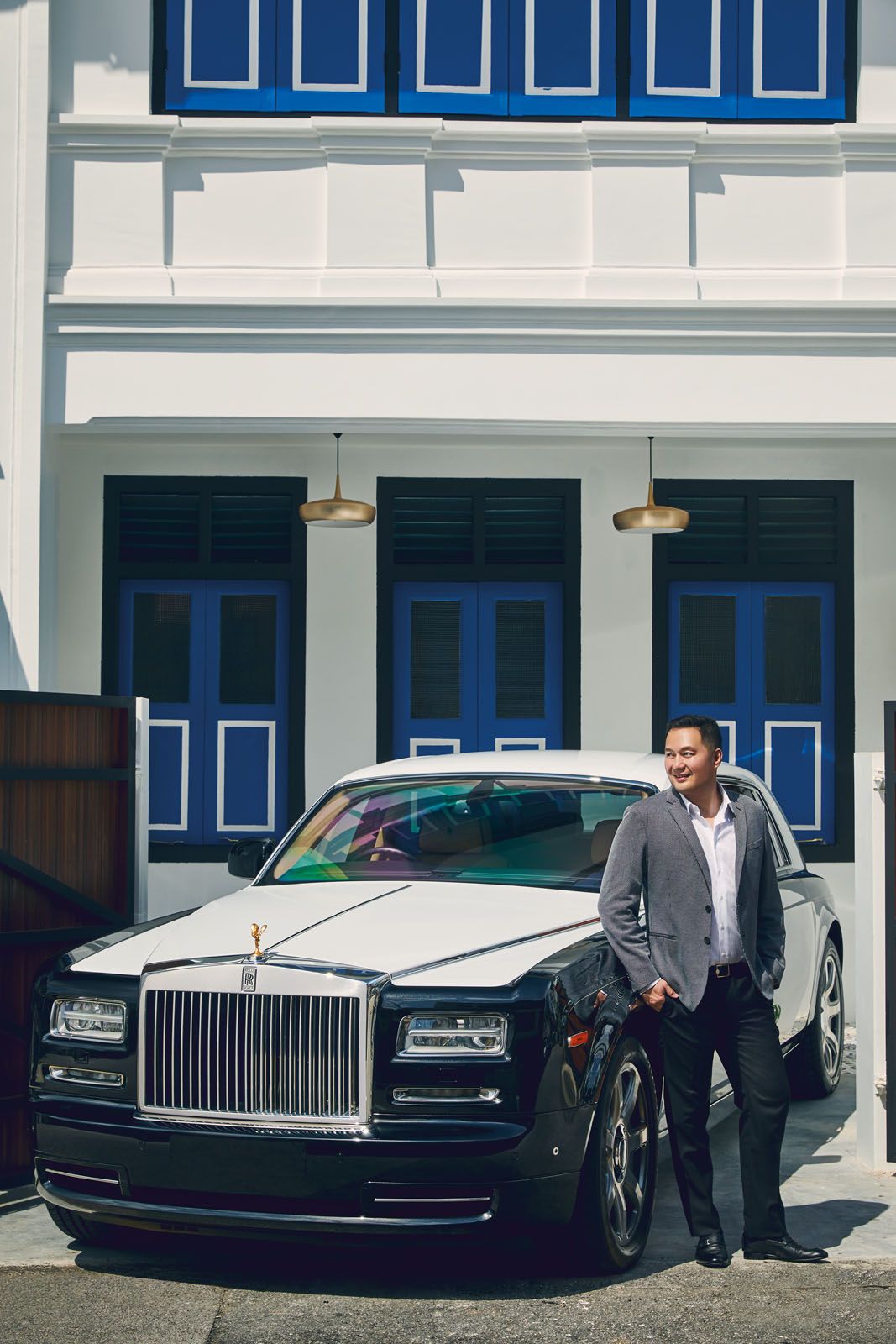Tatler+
From building luxury homes to investing in blockchain, the veteran entrepreneur is fearlessly looking forward to the future
"I make decisions very fast,” Eric Cheng tells us at one point during this interview. “That is my strength.” Friendly and easygoing in person, there is little sense during our shoot that this entrepreneur is a man in a hurry. But the evidence of his inclination for swift action is actually all around us—we are talking in a 1940s inter-terrace house along Makepeace Road, a property he decided to acquire on the spot during his first viewing last year.
“I have very strong instincts when it comes to houses; they communicate with me. And when I saw this one, my first instinct was to buy it,” he explains. Firstly, the house is located in the well-heeled District 9, where properties don’t change hands often. “In the last eight years, there have been no transactions along this entire lane. So I signed the option agreement on the spot without negotiating the price at all. I knew this was a good buy.”
He was proven right just a few days later, when a keen buyer offered him a higher price for the place. “But I refused to sell. Sometimes, good things cannot be replaced.” In fact, Eric scrapped his original plan to erect a new house on this plot of land. Instead, he lavished some tender loving care on the original property’s vintage charms, spiffing up distinctive features such as the original flooring and wooden front door, and adding contemporary flourishes such as dramatic floral wallpaper. “I wanted to keep the character of the property, while also bringing a modern touch to it.”
From The Ground Up
Paying meticulous attention to aesthetic detail is Eric’s hallmark as a real estate developer. With his experience in architectural planning, he is able to personalise his properties through conceptual planning and by matching them to concepts and designs.
Eric is also very particular about space planning—from how the shape of a plot of land should influence the design of a house, to how the size of a house should impact its flow. “Often when I go to one of my construction sites, I can feel the house communicating with me, as it gives off a certain vibe that I am able to interpret,” he enthuses. “To create a perfect home for my clients, there are many small details we need to take into consideration. Do you have enough privacy from your neighbours if I placed the swimming pool at a certain spot? If it’s a multigenerational family home, can you look down from one floor and see your child’s room, and also be within hearing distance of your parents’ living space? Understanding these things requires years of experience as a developer.”
The eldest of four children, Eric grew up in Chinatown, where his business instincts were evident from a young age. He remembers walking past money changers as a child, and being intrigued by the difference between the buying and selling prices of different currencies, and how these numbers would fluctuate over time. “I saw that there was an opportunity to make a profit there,” he recalls with a laugh.
Without a family business to inherit or access to capital, however, he had a long way to travel before he would become a full‑fledged entrepreneur. At age 20, he became an air steward, reckoning that it offered a comparatively high salary for someone his age. After eight years, he segued into real estate, making his first million within his first two years as a property agent. Steadily climbing the ranks of his new industry, he was soon managing a team of 7,000 agents.


